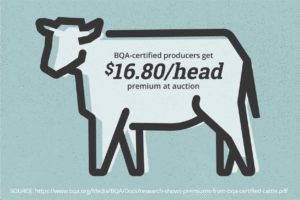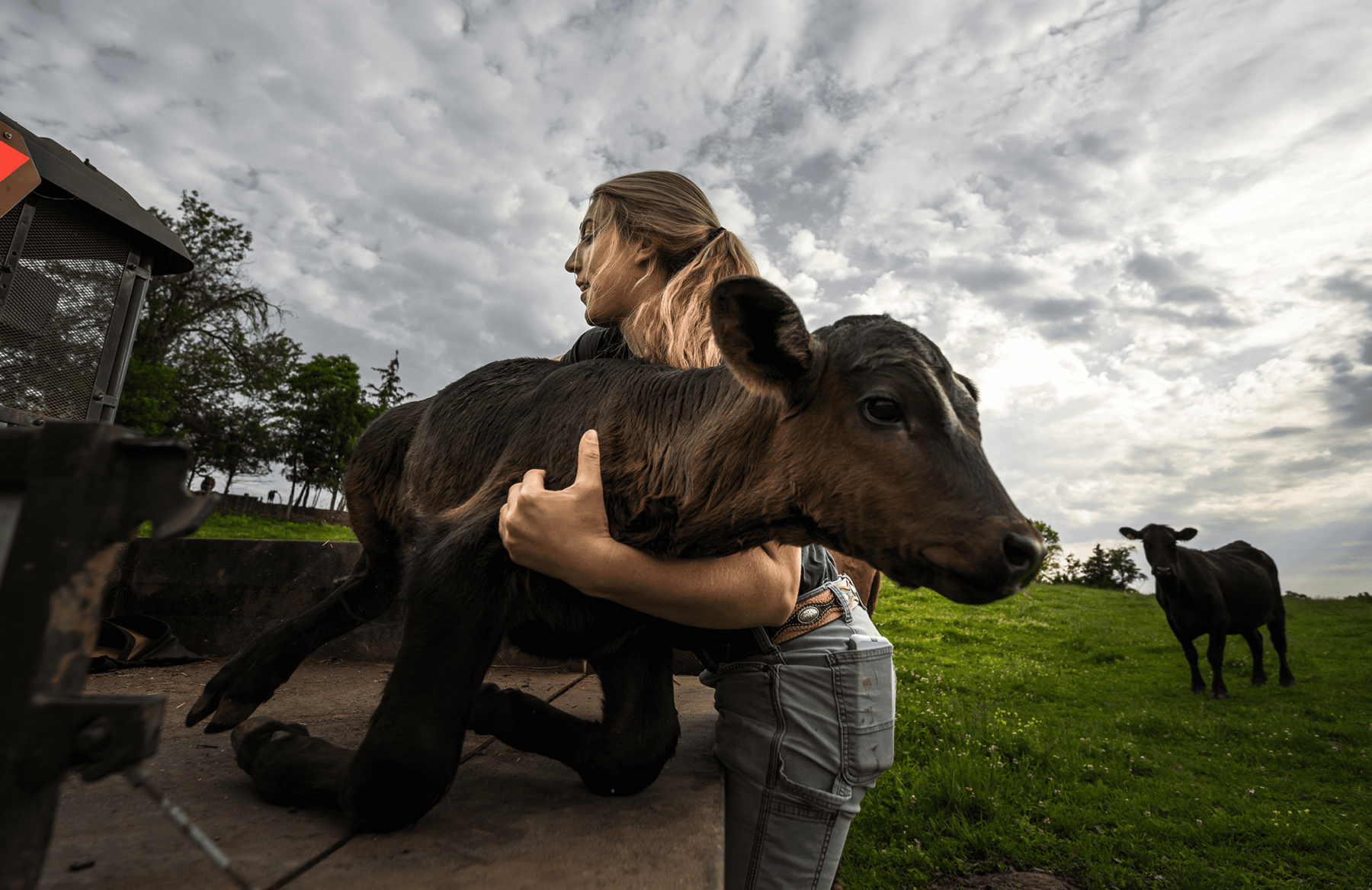 New research conducted by Colorado State University (CSU) shows that the Beef Checkoff-funded Beef Quality Assurance (BQA) program results in a significant premium for calves and feeder cattle sold through video auction markets. The results showed a premium of $16.80/head for cattle that had BQA listed in the lot description.
New research conducted by Colorado State University (CSU) shows that the Beef Checkoff-funded Beef Quality Assurance (BQA) program results in a significant premium for calves and feeder cattle sold through video auction markets. The results showed a premium of $16.80/head for cattle that had BQA listed in the lot description.
Today, approximately 85 percent of U.S. beef comes from BQA-certified producers. Beef farmers and ranchers have historically participated in the BQA program simply because they believe it’s the right thing to do. In fact, the 2011 National Beef Quality Audit found that 87 percent of BQA-certified producers participate for that very reason1. In terms of securing economic longevity, the BQA program offers producers the opportunity to showcase their dedication to producing high-quality beef and earn premium dollars for it.
The BQA program’s purpose is to ensure cattle are raised under optimum management and environmental conditions. By protecting herd health and incorporating safe and effective management practices, BQA-certified producers provide consumers with high-quality beef they can trust to feed their families.
In the mid-1980s to 1990s, state cattle organizations began funding local BQA programs in an attempt to alleviate various defects – injection-site lesions, bruising and antibiotic residues within the meat – that were making their way through the beef supply chain.
In 1991, the Beef Checkoff funded the first National Beef Quality Audit to help identify product conditions and establish new benchmarks. As a result, the national BQA program was developed to address these areas of improvement.
While it was first established to correct quality issues, the BQA program has evolved over the years. Today, the program is more comprehensive, teaching producers how to improve production methods throughout the animal’s lifecycle, from how it’s raised to how it’s processed. As a result, the BQA program seeks to improve beef quality and safety.
To ensure the BQA program stays up to date on production methods and quality standards, the National Beef Quality Audit assesses it every five years.
“By measuring where the industry stands in regard to quality every five years, we’re able to advance the program, take a look at the industry holistically and see how the BQA program can address those issues and constantly improve beef products,” says Chase DeCoite, Director of BQA for the National Cattlemen’s Beef Association (NCBA), a contractor to the Beef Checkoff.
Producers voluntarily choose to become BQA certified; however, those who do can experience many benefits. Throughout the supply chain, the retail and food service sector drives demand for BQA certification. These companies and businesses want to offer their buyers and consumers the highest-quality beef available, and as such, will gravitate toward the products that are BQA certified.
Nowadays, more consumers want to know the story behind the food they eat. According to the checkoff-funded Consumer Beef Tracker, 70 percent of consumers sometimes, often or always consider how their food was raised before making their purchasing decisions.2 That’s why NCBA, on be half of the Beef Checkoff has launched a new campaign geared toward educating consumers about the benefits of the BQA program and show how today’s producers are committed to producing high-quality beef in a safe, environmentally friendly and sustainable way.
Moreover, cattlemen developed the BQA program for cattlemen to reinforce the beef industry’s dedication to responsibly raising cattle. As the beef industry evolves, there is always room for improvement. The BQA program is a resource that producers can utilize to ensure their production methods are up to par.
“BQA and the Beef Checkoff should be proud that we’ve had a program in place for 30 years to address quality concerns,” says DeCoite. “Producers should be proud they invested in a program that has been so successful, it is now being picked up by the supply chain and proves the product we’re serving is responsibly raised.”
From a value standpoint, BQA certification is not just the right thing to do for cattle, but also fiscally beneficial to the producer. Become BQA certified at www.BQA.org.

